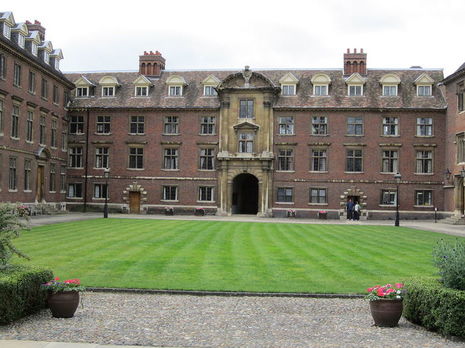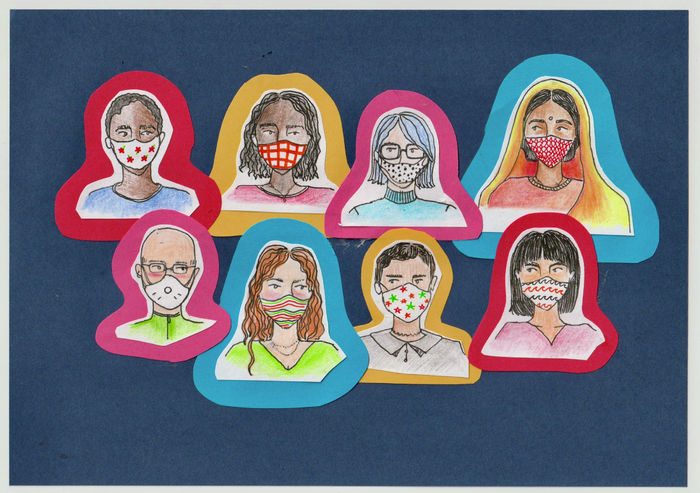Why homelessness provision in Cambridge must address women’s issues
Based on her conversations with the Women and Homeless Action Group and Ella, a woman who has experienced homelessness in Cambridge, Zannah Lindley argues our response to homelessness must put nuanced, person-centred care at its centre.

Content Note: this article contains discussion of sexual violence and domestic abuse.
The Covid-19 pandemic has spotlighted some pervasive issues in Britain’s treatment of homelessness. The government’s ‘Everyone In’ policy, and its initial underestimation of the number of people who would need the service, showcased a fundamental lack of understanding of what it means to be homeless in this country.
Of particular issue is the understanding of homelessness solely as rough sleeping. This overlooks forms of ‘hidden homelessness,’ such as sofa-surfing. Consequently, a much greater number of people have sought refuge through the ‘Everyone In’ policy than the government expected. Critically, a 2018 University of York study found that this focus on rough sleeping at the expense of other forms of homelessness leads to an inability to address women’s experiences. The overlooking of women within homelessness reporting and policy is stark, and an issue that needs urgent redress – something which the Women and Homeless Action Group (WHAG) are tackling in Cambridge.
“Women are often the hidden homeless”
WHAG’s coordinator, Diana, outlined the critical link between an overemphasis on rough sleeping – neglecting women’s issues – and how the pandemic has exposed this: “Women are often the hidden homeless, for safety’s sake,” she said. Through her experience working in homelessness support and in a service supporting women, Diana has heard countless stories of the horrendous abuse women have been subjected to when sleeping rough and understands why many will do anything to avoid it.
A participant in the York study stated that, when women do sleep rough, “we have to hide because if we don’t we’re gonna get raped, kicked, beat. Women dress more like men as well when they’re out. All covered up and that … big baggy stuff.” This means that the number of women rough-sleeping or dealing with other forms of homelessness is drastically undercounted. More seriously, when rough-sleeping becomes the criterion for seeking help from local councils, it prevents many women from getting support.
I spoke to Ella, whose experience of being homeless in Cambridge shows the barriers women face when seeking support within services that rely on a one-dimensional approach to homelessness. She became homeless after fleeing an abusive relationship. Having exhausted all options of sofa-surfing with family and friends, she sought help from the council. The response was shocking: “I’ll never forget it … [they] said you don’t have children, you’re not pregnant, and you’re not mentally ill enough.” This was despite having been signed off from work due to severe mental health difficulties.
Thankfully, Ella was told about Jimmy’s – a local emergency accommodation organisation – and was given a bed at the shelter for four months. She expressed how grateful she was for this, but also said that the experience there was difficult: “I was a woman in a mainly male place, there was only one other girl there … I had PTSD from my relationship, I was terrified of people in general – but especially men.” Ella’s situation reflects a huge issue for women seeking support from homelessness services. Though people of all genders can experience domestic abuse, a very high proportion of homeless women have experienced abusive relationships. Many avoid homeless shelters for fear of being in male-dominated spaces after such traumatic experiences.
The pandemic has caused a worrying increase in domestic abuse, causing more women to become homeless in fleeing abuse. Yet as Alison Nolan, women’s officer for the Cambridge homeless charity Winter Comfort, outlined in a recent article, the ‘Everyone In’ policy has perhaps for the first time shown service providers in Cambridge the need for women-only accommodation. The current accommodation housing Cambridge’s homeless, Master’s House, now has a women’s only section, after it became clear that many women were not engaging with services because of previous trauma.
“Homelessness is the symptom. It is the root causes that we must tackle.”
Ella’s experience also shows that it is not just women’s-only spaces that are so necessary but also the holistic approach that such spaces provide. After Jimmy’s, she moved to a women-only home owned by the Cambridge Cyrenians. She stated that the time away from men “gave [her] time to heal” but, more critically, the counselling she accessed through the Cyrenians “changed everything”. It was only when she was given this mental health support that Ella felt able to move back to living independently. As she says, “homelessness is the symptom”. It is the root causes that we must tackle.
This is something that WHAG hopes to provide. The group aims to set up both a “Haven,” which will provide drop-in and overnight support for women, and a permanent “Home” that women can stay at indefinitely. Most importantly, the Home will connect women with the resources needed to address the underlying issues and traumas that have led to them becoming homeless. Ella explained that for survivors of domestic abuse, trauma-informed care is critical: “If you’re trying to get away from [mental abuse] you’re fighting with yourself, part of you is saying ‘just go back’ … If a shelter is full again with men or people not understanding of that mindset or situation … it’s so easy to slip back into that mindset”.
Funding is crucial to achieve this goal. In this climate of scarce and undercut resources, it is hard to come by. But Diana and the rest of WHAG remain hopeful. Raising awareness is a large part of the battle, and the City Council’s recently published Homelessness & Rough Sleeping Strategy 2021-2026 includes information, albeit limited, on the women-specific issues that need addressing, and commits to “seek the views of female rough sleepers as to their experience of homelessness and local service provision”.
The early nationwide successes of the ‘Everyone In’ policy – and the Cambridge-specific response of some colleges providing emergency accommodation – show that we can properly address homelessness when there is political and community will. Ensuring that we learn from the past year means listening to the experiences of people who have been homeless and recognising their individual paths and needs.
Following the pandemic, the University and Colleges must reassess their role in the UK’s most unequal city, especially given their extensive property monopoly on the centre, and offer permanent help to homelessness organisations who desperately need such property to address specific and overlooked issues affecting women.
We have long needed to commit to addressing this issue. It is high time the University examined its ability to do so.
Further information:
For more information about WHAG, visit: https://www.ittakesacity.org.uk/newpage
For more information about how students are supporting Cambridge’s homeless, to take part in a survey about perceptions of homelessness and to support the ‘Lockdown Love Letters’ fundraiser, visit https://www.facebook.com/CambridgeHomelessOutreachProgramm
If you have ideas about how students can encourage the University to better support the homelessness community, please contact: ethicalaffairs@cusu.cam.ac.uk
 News / Report suggests Cambridge the hardest place to get a first in the country23 January 2026
News / Report suggests Cambridge the hardest place to get a first in the country23 January 2026 News / Reform candidate retracts claim of being Cambridge alum 26 January 2026
News / Reform candidate retracts claim of being Cambridge alum 26 January 2026 News / Cambridge ranks in the top ten for every subject area in 202623 January 2026
News / Cambridge ranks in the top ten for every subject area in 202623 January 2026 Comment / Cambridge has already become complacent on class23 January 2026
Comment / Cambridge has already become complacent on class23 January 2026 News / Palestine activists project slogans onto John’s24 January 2026
News / Palestine activists project slogans onto John’s24 January 2026









